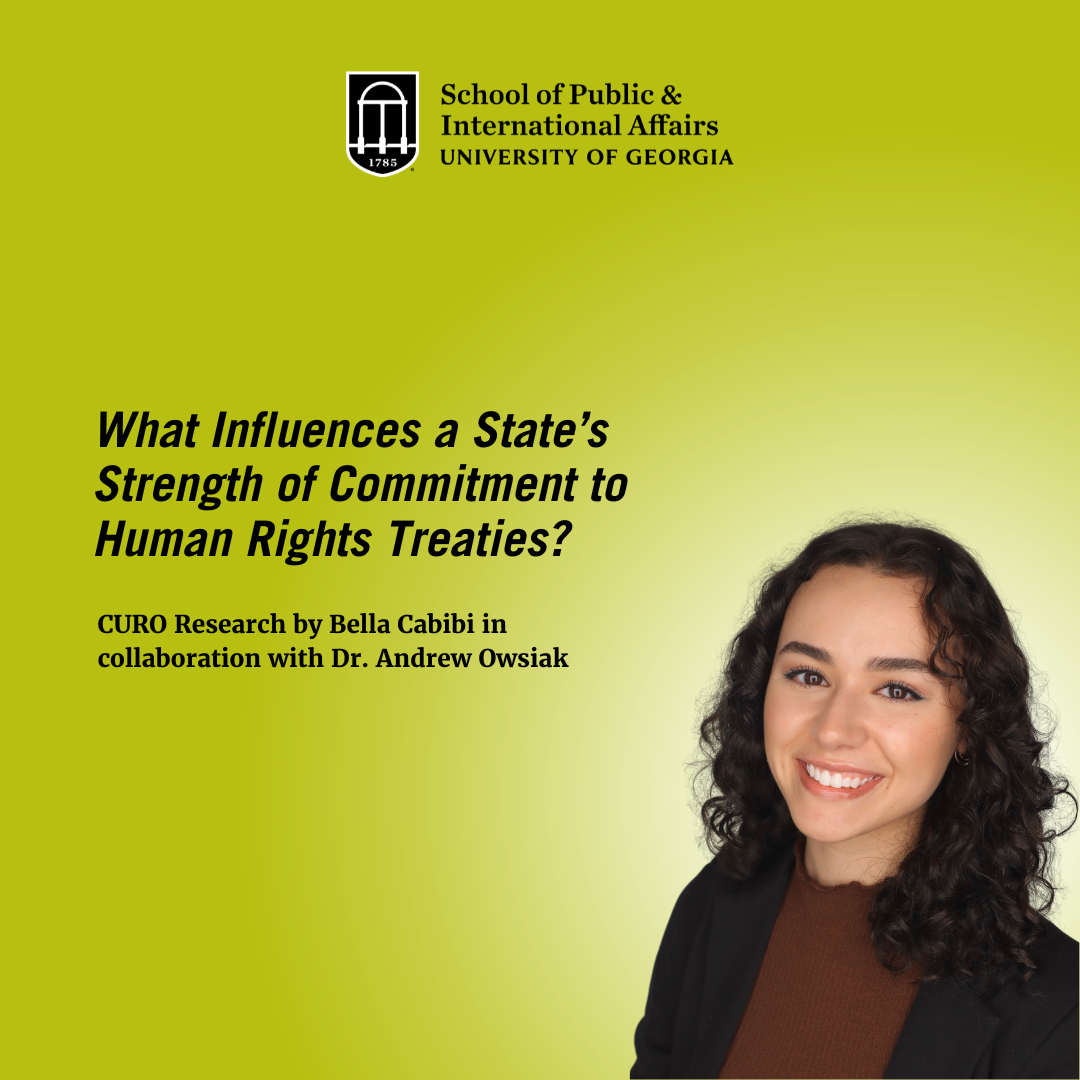Bella Cabibi is a fourth-year student pursuing a Bachelor of Arts in International Affairs as well as a Certificate of Data Analytics in Public Policy at the University of Georgia. She is the founder and president of UGA’s Women in Political Science and International Affairs, an organization that promotes female engagement in politics. With an impressive overall GPA of 3.97, Bella is a Presidential scholar and a recipient of the Zell Miller Scholarship. Though Bella boasts an impressive academic career here in the School of Public and International Affairs, she originally wanted to study veterinary medicine, until she decided to pursue international affairs and fell in love with R.
The R Project for Statistical Computing is a software program for data calculation and analysis. In collaboration with Dr. Andrew Owsiak, Professor of International Affairs and Josiah Meigs Distinguished Teaching Professor here at the University of Georgia, and equipped with R, Bella endeavored upon her first research publication: What Influences a State’s Strength of Commitment to Human Rights Treaties?
Bella’s research hypothesizes that democracies, states with higher levels of GDP per capita, and states that experience less intrastate conflict (and therefore more peace) have a higher likelihood of committing to human rights treaties. After two semesters of hard work and lots of time in R, Bella and Dr. Owsiak’s research yielded a couple of statistically significant results. They concluded that democracies and states with a higher GDP per capita have a higher strength of commitment to human rights treaties. They also found that there was an inverse relationship between peace and strength of commitment, meaning that fewer occurrences of intrastate conflict result in a lower strength of commitment score to human rights treaties.
Bella’s research is a part of UGA’s Center for Undergraduate Research opportunities (CURO) program, wherein students can pursue their own research interests under the guidance of a faculty mentor. “Really committing to your own research and working with other people, it’s a lot of work, but it’s one of the most rewarding things,” says Bella. “You learn more working on your own project than you would think.”






